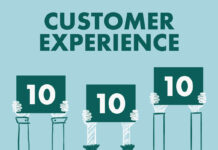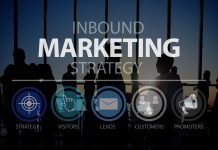In boardrooms and supplier meetings across the globe, one question is coming up more often than ever: “How sustainable is this choice?” Sustainability isn’t just a corporate checkbox anymore—it’s becoming a deeply personal and strategic concern for businesses. As companies face increasing pressure from stakeholders, customers, and even their employees, aligning with environmental, social, and governance (ESG) principles has become a business imperative. This shift is giving rise to a new era of B2B sustainability, where buyers actively seek partners who reflect their values. It’s changing how procurement decisions are made—and how vendors must position themselves to stay relevant in a purpose-driven market.
Why B2B Sustainability Matters
Sustainability is influencing the B2B market at multiple levels. From supply chain transparency to carbon footprint accountability, buyers are placing sustainability criteria alongside price and quality during the decision-making process. According to a McKinsey study, more than 70% of B2B customers consider a supplier’s sustainability performance when making purchasing decisions.
Key Drivers Behind Sustainable Purchasing
Several factors are pushing businesses to prioritize sustainability in their B2B relationships:
- Regulatory Compliance: Governments around the world are tightening environmental regulations, compelling companies to source responsibly.
- Stakeholder Expectations: Investors, customers, and employees demand accountability and ethical sourcing.
- Cost Savings: Contrary to outdated beliefs, eco-friendly products often result in long-term cost reductions through energy efficiency and waste minimization.
- Brand Reputation: Collaborating with sustainable vendors enhances brand value and market perception.
The Role of Eco-Friendly Products in B2B Buying
Companies are actively looking for eco-friendly products that align with their internal sustainability goals. Whether it’s biodegradable packaging, low-emission machinery, or recyclable office supplies, procurement teams are evaluating environmental impact alongside technical specifications.
The procurement checklist now includes:
- Carbon footprint of the product
- Use of renewable or recyclable materials
- Compliance with sustainability certifications (e.g., ISO 14001)
- Supplier’s commitment to ethical labor and environmental standards
As a result, B2B vendors who offer verifiable sustainability benefits gain a competitive edge in the marketplace.
Green Marketing and Its Influence on B2B Buyers
Green marketing has emerged as a powerful tool in the B2B space. When companies communicate their sustainability credentials through whitepapers, certifications, case studies, and lifecycle assessments, they build trust and credibility with prospective buyers.
Effective green marketing strategies include:
- Highlighting eco-initiatives in marketing materials
- Offering sustainability reports with performance metrics
- Showcasing success stories or partnerships involving sustainable projects
Importantly, authenticity matters. B2B buyers are wary of greenwashing and demand transparency backed by data.
How Sustainable Business Practices Shape Long-Term Partnerships
In B2B markets, transactions are rarely one-off events. Long-term relationships are built on shared values, mutual goals, and aligned visions. Companies that embrace sustainable business practices signal long-term viability and ethical responsibility—two qualities that attract loyalty and repeat business.
Sustainable practices that appeal to B2B buyers:
- Green logistics and energy-efficient operations
- Waste reduction programs
- Ethical sourcing policies
- Circular economy initiatives
These efforts not only demonstrate a commitment to sustainability but also foster innovation and resilience, traits highly valued by modern B2B buyers.
Case Studies
Several industry leaders have reaped tangible benefits by integrating sustainability into their B2B strategies.
- Siemens focuses heavily on environmental innovation, which has helped it secure major B2B contracts in the energy and infrastructure sectors.
- Unilever ensures sustainable sourcing in its supply chain and demands the same from its B2B suppliers, boosting both brand integrity and supply chain resilience.
These examples underscore the growing importance of B2B sustainability as a critical success factor.
The Future of B2B Sustainability
As global climate goals tighten and ESG investing rises, B2B sustainability will only become more vital. Businesses that fail to adapt risk losing not just market share but relevance. On the other hand, companies that embed sustainability into their core offerings will open new growth avenues, form stronger partnerships, and contribute to a healthier planet.
What B2B Sellers Should Do:
- Audit and improve your sustainability performance
- Obtain and promote credible certifications
- Train sales teams to communicate green value propositions
- Collaborate with clients on shared ESG goals
Conclusion
Sustainability is transforming the B2B landscape. From eco-friendly products to transparent green marketing, decision-makers are increasingly basing their purchases on environmental and ethical considerations. Embracing B2B sustainability is no longer optional—it’s a strategic necessity. Businesses that lead with sustainability will not only meet the expectations of today’s buyers but will also future-proof their operations in an evolving global market.
I hope you found this content helpful. For more such information, visit Fintecadvisor.









